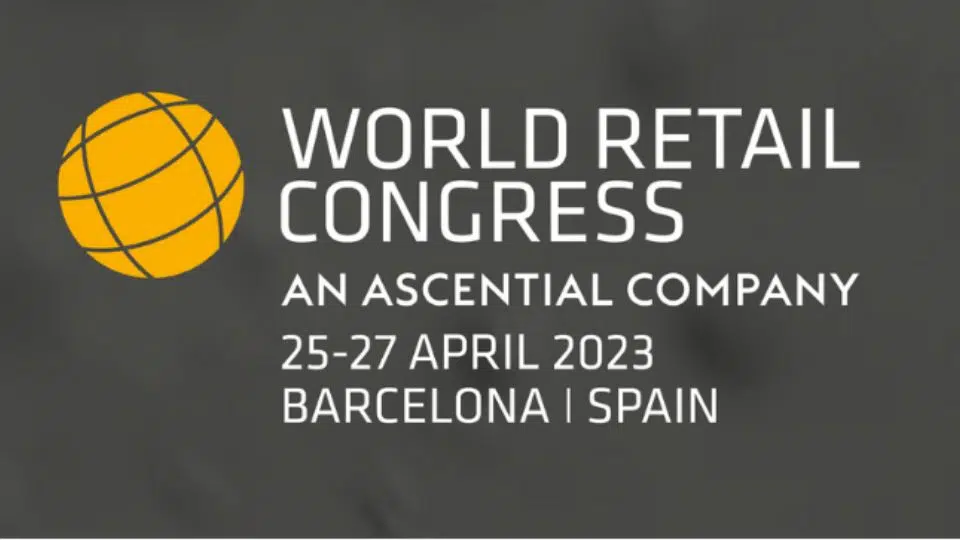Barcelona, April 25-27, 2023: The World Retail Congress brought together over 700 retail and industry professionals from over 40 countries. The three-day conference hosted an array of topics spanning from global economic challenges to climate change. Columbus Consulting’s Global Senior Retail Advisor, Andrew Jennings OBE was in attendance and met with other leaders to participate in the discussion and thought leadership sessions.

Living up to its reputation, the WRC focused on meaningful content, industry opportunities and forthcoming challenges and roadblocks. Of primary interest are the varying economic conditions existing in Europe, The United States and China. Global inflation continues to present cost increases and margin compression regardless of region. Rising interest rates to combat inflation are putting more pressure on consumers and the credit market at large. Anticipated increases in unemployment and varying degrees of recovery are creating some uncertainty for Q3 and 4. These variables, coupled with the erratic climate impact on seasonal fashion businesses, have driven many in the industry to define a new cautious path forward post pandemic.
During these challenging times, retailers are looking for extraordinary leaders to both innovate and motivate. Defining the new retail organization amidst artificial intelligence and balancing emerging talent with legacy skill sets has required executives to think differently. Not only do retailers need to be customer-centric, they need to do more with less, protect their brands and unify their physical and digital channels. The main call to action for these professionals is to “be brave and carry on.” Speed is the new KPI in making decisions, reacting to mistakes and delivering to the customer.
The common denominator for all retail is the wealth of concerns and roadblocks that still need to be navigated. Rising costs, declining spend, increases in debt and vulnerable supply chains still challenge the industry even with the renewed focus on organizational transformation across people, process, product and platforms. The digital revolution helped to solve for some of the early bottlenecks, but technology is also presenting flaws that now need to be addressed. Powerhouse retailers like Amazon and Walmart continue to raise the bar across categories, redefining payment options, delivery choices and inventory selections. Similar to economic classes, the retail industry is also seeing a compression of the middle market. With luxury and affordable fashion maintaining their paths forward, mid-tier brands are fighting for market share.
Economic, leadership, and technology issues are not the only headlines from the conference, saving the planet continues to steal the show as retailers feel the pressures from consumers to be part of the carbon neutral solution. In addition to more efficient supply chains and distribution strategies, developments in textiles and new trends in e-commerce are proving to be key components. Brands like Patagonia and lululemon have paved the way for second-hand commerce and are showing how responsible commerce can be profitable by driving frequency and long-term customer value. Selfridges has increased focus on sales of previously owned, pre-loved items as well as rental and repair services to reduce environmental impact. Hurr Collective, a peer-to-peer rental platform, has opened up a pop-up shop in Selfridges. [For more on this conversation, read the Columbus Consulting article by Heather Koerner: https://www.columbusconsulting.com/insights/who-knew-hand-me-downs-could-be-so-cool/ ].
In addition to “like new” goods, retailers are looking for other means to extend the life of their products, thus avoiding premature contributions to the landfills. Product longevity is now a focus as lifetime warranties are re-emerging to be part of a brand’s value proposition. In store repair stations and even recycling programs are all contributing to innovative solutions toward the planet’s protection.
But none of these trends, challenges, obstacles, roadblocks or innovations could be happening without a mentality for change. Adapting to the agile marketplace and pivoting preferences of consumers can only be successful with courage and vision. In his presentation, Steve Dennis, retail influencer, spoke about timid transformation and the need to move forward and do so quickly. He outlined 7 criteria for retailers today:
- Crush your ego and embrace vulnerability
- Wake up and dig deep
- Narrow the focus
- Amplify the WOWs
- Re-imagine the future by thinking radically not just incrementally
- Safe is risky
- Be fast and go
So, what’s the big headline here? Be special, be accountable, be brave, be relevant. Just another day in the life of retail.

